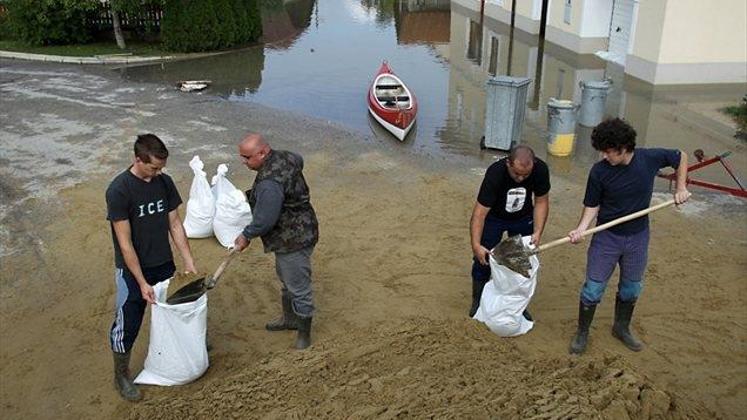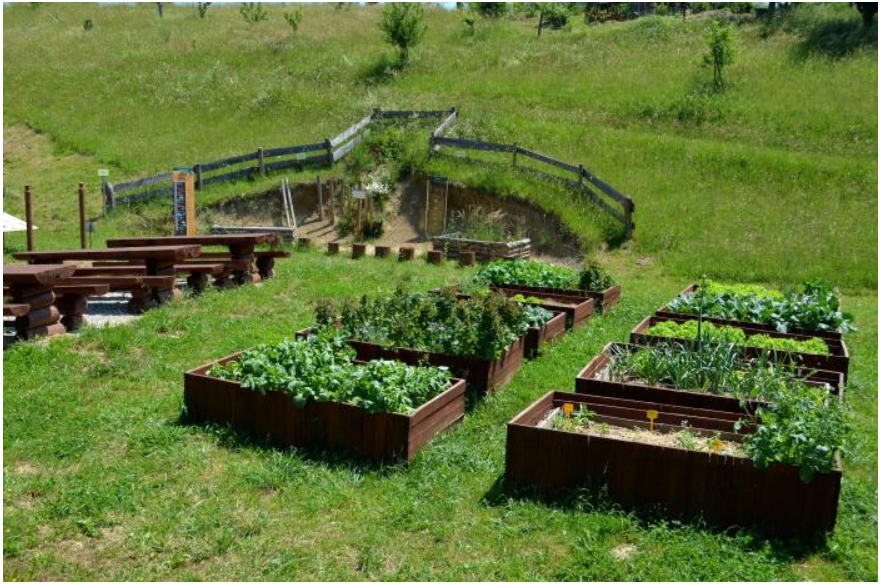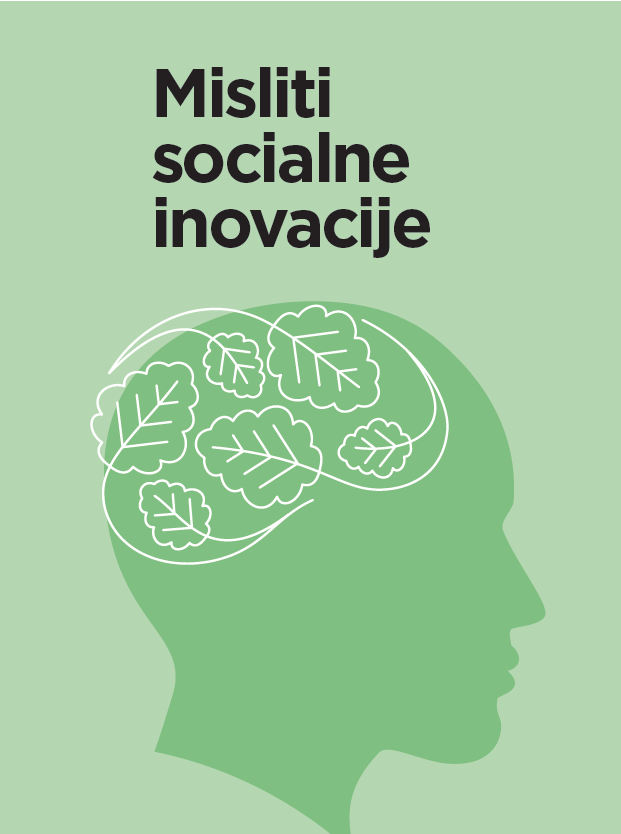
COMPREHENSIVE CURRICULAR REFORM IN CROATIA
BORIS JOKIĆ & ZRINKA RISTIĆ DEDIĆ, INSTITUTE FOR SOCIAL RESEARCH IN ZAGREB
Since gaining independence in 1991, Croatia has failed to place education at the forefront of its social and political agenda. This long-term marginalisation of education has resulted not only in an educational system that has gone largely without reform for nearly 30 years but also in the continuous decline of the financial and social status of educational professionals working in kindergartens and schools (Vizek-Vidović, 2015). While numerous attempts at modernising and reforming Croatian education have been initiated over the years, often accompanied by the delivery of strong PR rhetoric by the relevant authorities, these efforts have only survived long enough to be quickly abolished without implementation by the very same political forces that initiated them or by opposing forces during times of political change (Pastuović, 2012). These temporally disparate and poorly coordinated reform efforts can all be characterized by a strongly top-down approach to educational change, conceptualized and driven by political and academic stakeholders within specific interests and little input from the professionals working in the system. This has contributed to a lack of coherence within the educational system and a complete absence of ownership over any proposed changes among those ultimately responsible for implementing them – educational professionals. The end result of these repeated, failed attempts at educational reform is an educational system not applicable to the needs of the 21st century, a disenchanted educational workforce and almost non-existent reform potential within Croatian society. At the same time, educational outcomes among Croatian pupils have indicated a critical need for change and room for substantial improvement, as evidenced by diverse empirical evidence including the results of State Matura (e.g. Jokić, Ristić Dedić & Šabić, 2011; Ristić Dedić & Jokić, 2013; Vuk, Vranković & Orešić, 2015), PISA (e.g. Braš Roth, 2007; Braš Roth, Markočić Dekanić, Markuš, & Gregurović, 2010; Braš Roth, Markočić Dekanić, Markuš, & Gregurović, 2013; Braš Roth, Markočić Dekanić & Markuš Sandrić, 2017). ) and various attitudinal dimensions (e.g. Baranović, 2006; Roviš & Bezinović, 2011; Stevanović & Capak, 2014 ).
The Comprehensive Curricular Reform (CCR) represents one of the most ambitious goals of the National Strategy of Education, Science and Technology accepted by the Croatian Parliament in November, 2014. It was envisaged as a comprehensive reform endeavour aiming to connect the various levels of pre-tertiary education into a coherent, flexible and effective entity founded on common educational values, principles and goals. From the outset, the CCR focused on four main elements (Picture 1).

The CCR aimed to introduce a curricular approach based on learning outcomes to the Croatian education system by modernising processes of teaching, learning and assessment. To do so, 62 curricular documents using a common methodological approach, as well as new frameworks for assessment and reporting on the development and achievement of pupils, were developed. The CCR also included special framework documents dedicated to the implementation of these processes when working with pupils with special educational needs and gifted pupils. From its inception, the main emphasis within the reform was placed on the need for a comprehensive and tailor-made program of professional development for educational workers as a prerequisite of successful changes in education.
While the content of the reform documents has taken into account the traditions of Croatian education and has many similarities to that present in the educational systems of other developed countries in Europe and throughout the world, the reform process was completely innovative and represents an important social innovation. Specifically, the process aimed to address observed inability of Croatian society to reform a strategically important social subsystem by increasing the potential and willingness of all involved stakeholders to conduct reform. Furthermore, it aimed to raise awareness of the issue of education by placing it at the top of the social agenda, to give a strong presence to the educational workforce in the reform and to democratise the entire process. When the CCR process began in February 2015, there was little indication that it would succeed in achieving these lofty goals.
The CCR process, as postulated by the Strategy of Education, Science and Technology, was led and coordinated by a seven member Expert Working Group (EWG). The EWG was elected following a public call and positioned outside of the bureaucratic system of the public administration and the Ministry of science and education. Although this positioning allowed for greater independence, innovation and larger flexibility in decision-making, it also increased the risks of provoking resistance from ministerial structures, raising the possibility that educational reform would slide further down the political agenda. From the outset of our work as the EWG, a system of values that would be respected in all aspects of the reform process was established. These were: scientific foundation, independence from political influence, integrity, responsibility, respect for differing perspectives, transparency, collaboration and positive and sincere communication. From the outset, it was clear that the establishment of new structures and forms of work was necessary in order to achieve the aforementioned goals. The development of these structures started with the establishment of a ‘Unit for professional and administrative support’, which consisted of more than 50 employees of public agencies in education and the Ministry. Under the provision of the EWG, this Unit worked in establishing the conditions for commencing work of independent professionals coming from different context and with varied experiences on the development of curricula and was crucial to the effectiveness of the communication between the EWG and various educational agencies.
The development of curricular documents was guided by a number of decisions made by the EWG that, in comparison with previous reform efforts, were viewed by many as radical. The first of these decisions was to use public calls in order to select members of the working groups responsible for the development of each curricular document. These public calls were open to all educational professionals working in the system (teachers, principals, psychologists, Kindergarten providers, pedagogues, etc.) as well as members of academia. All applicants were required to submit a written elaboration of his/her ideas on the ways in which the educational system might be reformed in his/her respective field and a motivational statement. The selection process entailed a condition that the majority of members in any working group needed to be from schools. Inclusion of this condition aimed to directly acknowledge the importance of the views of professionals working in schools, a perspective that has often been both neglected and subordinate to those stemming from academia. This decision to give relative prevalence to the practitioners’ perspective came under scrutiny by one segment of the academic community, who argued that ‘real experts’ should be invited or delegated and that teachers and school staff were not sufficiently competent for curricula development. However, the fact that educational professionals from even the smallest communities and schools across the country were able to apply and eventually be selected as those responsible for developing national curricula positively contributed to a public sense that this reform was built on democratic principles.
One of the most radical decisions made in planning the new structures and forms of work to be carried out was that teachers selected to work on the reform were allowed to leave their teaching posts in schools for the duration of the reform. The rationale for this decision was that development of curricula and a comprehensive plan for the professional development of all teachers demanded concentrated effort. The teaching positions of those selected to work on the reform were temporarily filled by replacement teachers during the reform period. This decision was perceived by educational professionals and unions to indicate respect for those who work in schools and a devotion to the reform process and, as such, was received positively. Other innovative elements housed within the reform process included the implementation of a blended working model that, in each working group, included frequent face-to-face meetings and online collaborative work on very precise tasks under supported leadership. Elements of innovation were also present in the manner in which the work of working group members was financially remunerated, where compensation came only upon completion of the work and distribution of this remuneration among individual group members was decided upon collectively by group members themselves.
Prior to commencement of the development of curricular documents by working groups, the EWG developed the Framework of the National Curricula, which defined the vision, values, educational cycles and principles of teaching, learning and assessment for the whole system of education of Republic of Croatia. This framework was to be respected and incorporated into all other curricular documents. The EWG also developed methodological guidelines for curricula development. Together, these documents imposed a common structure on all other documents while also allowing for the flexibility necessary to accommodate to the specific needs and features of various elements of the system. Throughout this phase of establishing structures and procedures for reform development, all working documents were transparently published and intensive communication to all stakeholders and media was conducted by members of the EWG and, which aimed to provide clear and accurate explanation of the rationale for and nature of the proposed changes and to emphasize its independence from daily politics. This latter aim was deemed particularly important in light of upcoming parliamentary elections.
In September, 2015, all working groups had been formed. Together with the 70 members of the Unit for administrative and professional support, the group of active members participating in the development of 62 curricular documents now included more than 450 teachers, principals, school staff, university professors, scientists, and individuals from the of economic sector, non-governmental organisations and religious communities. This represented the largest organisational structure working on a common public task in the history of Croatia and included the most diverse group of professionals from differing fields, sectors, regions and ideological positions. The deadline for each working group to submit a draft curricular document was set as January, 2016. Prior to delivery of these drafts, the EWG developed a consultation process in which working groups were asked to nominate five experts that would as ‘critical friends’ and the first reviewers of their curricular documents. More than 200 people participated in this phase of the reform process.
Unfortunately, elections in November, 2015 ended in a political stalemate in which none of the political forces were able to form government. This led to considerable political turmoil that eventually ended upon the agreement between several political parties to form a centre-right government. Throughout both the election and all subsequent political infighting, the issue of the CCR was only marginally present. As such, it was of great surprise that, at the swearing-in ceremony of the new government in Croatian Parliament, part of its planned programme included a statement that the ‘Comprehensive Curricular Reform should be stopped’. Unsurprisingly, this statement and the intentions behind it evoked strong reactions among the public and social actors. The strength of this reaction prompted the new government to issue a statement that same day that this was in fact a ‘typo’ and that the CCR will continue. In reaction to this series of events, the EWG published several curricula online the same day. By presenting to the public the work of hundreds of people from all regions of Croatia and various spheres of life, the EWG hoped to disseminate the main values and ideas behind the process and content of the reform and separate the process from the politicking of Croatia’s major parties. At this point, the issue of education and the Comprehensive Curricular Reform became an important social issue with high public awareness of its importance for the future of Croatia.
Public interest in the CCR was further heightened in February, 2016, when all curricula were publically presented. Entering the public sphere with intense media coverage, the curricular documents became an issue of fierce public debate and it quickly became clear that certain political actors aimed to make educational reform an ideological issue. Once again, the EWG responded with the development of another set of new radical ideas for the curricular document consultation process. In order to ensure the process remained democratic, a comprehensive process for professional discussion and review was developed in which documents were made presented to a large majority of educational professionals and academia working in Croatia. Upon presentation of the documents, these individuals were invited to send comments, views and/or suggestions regarding any given document. These comments were reviewed, responded to and incorporated into new versions of curricular documents by each group. All together, more than 30,000 people participated in this process and represented the second procedure developed originally by the EWG to ensure the democratisation of the reform process. It was also considered to be an important component of professional development for educational professionals.
During this period, EWG members also presented the reform process and documents to all segments of society – pupils, national bodies, political parties, economic associations, unions, NGOs, religious communities – in a coordinated, cross-country program of presentations, lectures, meetings and public forums. In May, 2015, revised, improved versions of the curricular documents were made available for an official public discussion in which every Croatian citizen could participate. At the same time, political pressures on the EWG increased and the support from the Ministry declined. This included an attempt at ‘starving’ the reform, where the Ministry refused to pay the travel expenses of working group members. In order to shield the reform process from these political pressures, the EWG asked the Minister of Education to clearly state that the process would be left to the professionals working on the reform, that all expenses incurred by members would be covered and that the Government firmly supported the reform process. After repeated requests to make his position clear on these matters, the Minister failed to provide any clear answers. As such, the EWG made the difficult decision that work on the reform could not continue under current conditions and all members of the EWG offered their resignations publicly in televised statement on the May 25th, 2015. The reaction of the public was supportive of the decision of the EWG and on the June 1st, 2016 public protests in support of the CCR were organised in Zagreb, as well as in other Croatian towns and European centres. Marching under the slogan ‘Croatia can do better’, more than 40 000 protesters protested in Zagreb alone. On June 19th, the Croatian government fell and new elections were called. On the same day, all members of the EWG were dismissed by the Minister of Science and Education.
Since that time, the issue of education has become a central election issue, where all parties have stated that curricular reform will continue. Following the fall of the government in the summer of 2016, the same centre-right coalition won the new election and subsequently published a public call for the establishment of a new EWG. Unfortunately, this process was completely without transparency and a number of irregularities in the election of EWG members have been exposed in the media. One year after the original protest, a second protest was organized on June 1st, 2017 in response to this latest round of political meddling. This time, protestors demanded the resignation of the Minister of Education and a return to the initial concepts of the CCR. More than 20 000 people participated in these protests, which ultimately did result in the Ministers’ resignation and the formation of a new coalition in Parliament. Soon after this new coalition majority was established, the Ministry of Education clearly communicated the message that curricular reform ‘should be institutionalised’. Although there was some attempt at establishing a new EWG, this process was again tainted by political meddling and, at present, the process of curricular reform is being led entirely by the Ministry as a top-down endeavour. In the 2018/19 academic year, a few of the elements included in the original curricular documents are being piloted in 74 elementary and secondary schools across Croatia with little resemblance to the original ideas behind CCR.
The story of the Croatian Comprehensive Curricular Reform is an illustrative reminder of an important possibility – the possibility for the democratisation of reform processes. Although only time will reveal what the final result will be, the innovative decisions made during this process allowed for the re-establishment of society’s willingness and openness to reform and raised public awareness and support for the importance of education in the Croatian context.
References:
Baranović, B. (Ur.) (2006). Nacionalni kurikulum za obvezno obrazovanje u Hrvatskoj: različite perspektive. Zagreb: Institut za društvena istraživanja u Zagrebu.
Braš Roth, M. (2007). Pisa 2006: Prirodoslovne kompetencije za život. Zagreb: Pisa Croatia/ Nacionalni centar za vanjsko vrednovanje obrazovanja. Braš Roth, M., Markočić Dekanić, A., Markuš, M. & Gregurović, M. (2010). Pisa 2009: Čitalačke kompetencije za život. Zagreb: Pisa Croatia/ Nacionalni centar za vanjsko vrednovanje obrazovanja.
Braš Roth, M., Markočić Dekanić, A., Markuš, M. & Gregurović, M. (2013). Pisa 2012: Matematičke kompetencije za život. Zagreb: Pisa Croatia/ Nacionalni centar za vanjsko vrednovanje obrazovanja.
Braš Roth, M., Markočić Dekanić, A. & Markuš Sandrić, M. (2017). Pisa 2015: Prirodoslovne kompetencije za život. Zagreb: Pisa Croatia/ Nacionalni centar za vanjsko vrednovanje obrazovanja.
Jokić, B., Ristić Dedić, Z. & Šabić, J. (2011). Analiza sadržaja i rezultata ispita državne mature iz fizike. Zagreb: Nacionalni centar za vanjsko vrednovanje obrazovanja i Institut za društvena istraživanja.
Pastuović, N. (2012). Obrazovanje i razvoj: kako obrazovanje razvija ljude i mijenja društvo, a kako društvo djeluje na obrazovanje. Zagreb: Institut za društvena istraživanja u Zagrebu i Učiteljski fakultet Sveučilišta u Zagrebu.
Ristić Dedić, Z. i Jokić, B. (2013). Analiza sadržaja i rezultata ispita državne mature iz Matematike 2009./2010. – 2011./2012. Poučak : časopis za metodiku i nastavu matematike, 14 (2013), 54; 4-21.
Roviš, D. i Bezinović, P. (2011) Vezanost za školu – analiza privrženosti školi i predanosti školskim obvezama kod srednjoškolaca, Sociologija i prostor, 49 (2); 185-208.
Vizek Vidović, V. (Ur.)(2005). Cjeloživotno obrazovanje učitelja i nastavnika: višestruke perspektive, Zagreb: Institut za društvena istraživanja.
Vuk, R., Vranković, B. i Orešić, D. (2015). Geografija na državnoj maturi (2010.-2012.) – analize i preporuke. Zagreb: Nacionalni centar za vanjsko vrednovanje obrazovanja.
Stevanović, R. & Capak, K. (Ur.) (2014) Osnovni pokazatelji zdravlja i dobrobiti učenika i učenica u Hrvatskoj (Istraživanje o zdravstvenom ponašanju učenika). Zagreb: Hrvatski zavod za javno zdravstvo.
Morda vam bo všeč tudi

DRUŽBENOODGOVORNO GOSPODARJENJE KOT SOCIALNA INOVACIJA
15/01/2019
OBLIKOVANJE SISTEMA VARSTVA PRED NARAVNIMI IN DRUGIMI NESREČAMI V LETIH PO OSAMOSVOJITVI
18/01/2019

